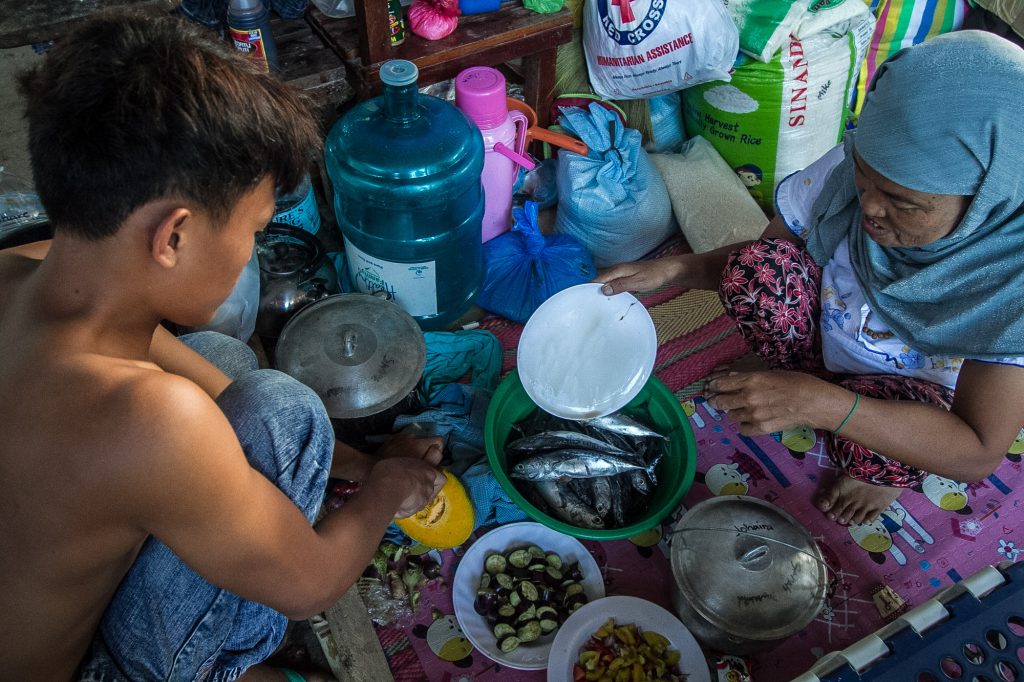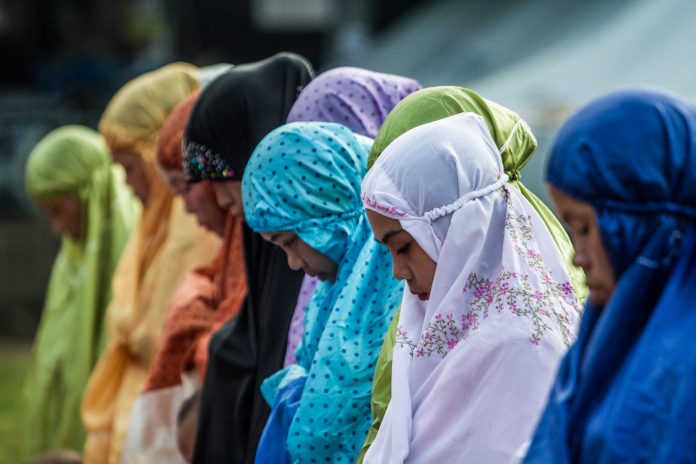Families displaced by the 2017 conflict in the southern Philippine city of Marawi appealed to the government this week to allow them to go back to their devastated homes.
The call came ahead of the observance of the Islamic observance of Eid al-Adha on Friday, July 31.
The observance is the second of two Islamic holidays celebrated worldwide each year, and considered the holier of the two. It honors the willingness of Ibrahim to sacrifice his son Ismael as an act of obedience to God’s command.
Samira Gutoc of the non-government Ranao Rescue Team lamented that President Rodrigo Duterte seemed to have already forgotten the 2017 conflict.
In 2017, a five-month shooting war between government troops and terrorist gunmen leveled the city of Marawi to the ground and affected close to half a million people.
“The siege was an incident in Mindanao history as serious as the world war, yet [Duterte] did not have any restitution, he did not even spare a second for Marawi,” Gutoc said referring to the president’s State of the Nation Address on July 27.
She said is is “important” for the [resident to address issues in Mindanao “because that was his social capital.”
The president has claimed in the past that he has Moro roots and that he’s from Mindanao, “but what he’s saying is different from what he’s doing,” said Gutoc.
On Wednesday, July 29, two days after the president’s address, displaced residents of Marawi hosted their own State of Marawi Bakwits, a forum to discuss the state of evacuees, or “bakwits.”
Mariam Hadji Malik reported that she continues to live with 1,000 other families in a temporary shelter in the village of Sagonsongan in the outskirts of Marawi three years after the conflict.
She expressed fear that they would soon be driven out of the village and have nowhere to go.
“Why don’t they give us their promised compensation so we can start building our houses at the ground zero, while they are also building other infrastructures there,” said Malik.
A bill has been filed in the House of Representatives proposing to compensate those affected by the 2017 conflict.

Mikmik Pumbaya, who sought temporary shelter in the village of Sagaran, called for “clear government plans” for Marawi.
“When are they sending us home? Not once did [Duterte] lay out his plans for us,” she said. “It’s hard to live in a place you are not used to,” she added.
Pumbaya said people in the village of Sagaran treat the evacuees “differently.”
“They’d hurt our kids when they see them playing around, they’d threaten us, and we can’t fight back because we’re not from here,” she said.
When the coronavirus pandemic hit the region, the evacuees were also left with no means to fight the disease, including their daily sustenance.
“We haven’t worked properly since the siege and each family usually just eats once a day,,” she said.
When the government gave out financial aid, the displaced families were not among the “priority” because they are not from the village.
“Let us go home, Mr. President, notice our misery,” appealed Pumbaya.
Non-violent martial law
In his State of the Nation Address, Duterte noted that even as he declared martial in Mindanao following the Marawi conflict there were not reports of human rights abuses.
Human rights groups, however, enumerated that since martial law was declared in May 2017, there have been six cases of forced disappearances, 35 torture cases, 28,813 cases of threat and intimidation, and more than 1,450 illegal arrests.
Human rights group Karapatan also reported that human rights were violated 800,000 times during the martial law implementation.
The group said the president is “propagating fake news,” citing the killing of seven tribal leaders in Lake Sebu.
“The lingering displacement situation is a violation of human rights,” said Karen Gomez-Dumpit of the Commission on Human Rights.
“Government must address the displacement of communities and direct efforts toward durable solutions for the families affected, including the rehabilitation of Marawi,” she told LiCAS.news.









